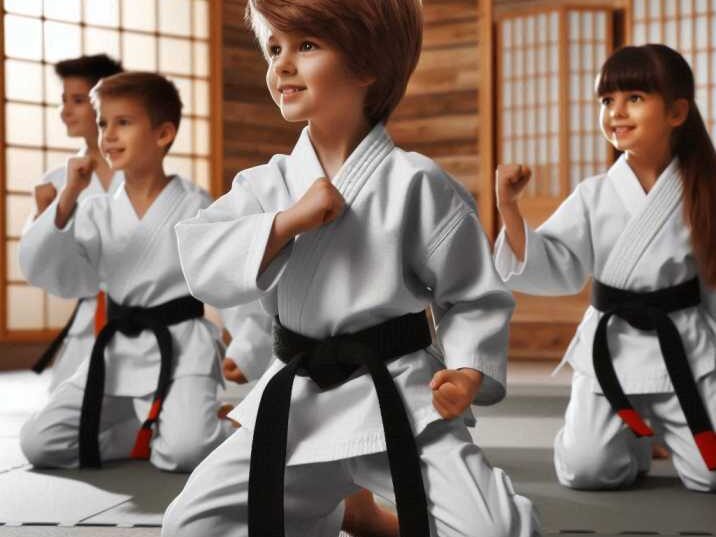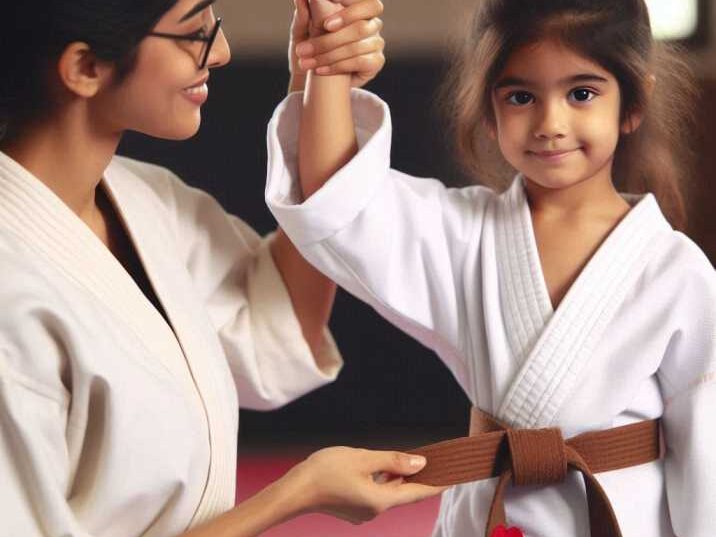Martial arts is not just about kicking and punching; it’s a journey of self-discovery, discipline, and growth. For children, it provides a unique opportunity to develop valuable life skills that they can carry into adulthood. Whether it’s karate, taekwondo, or Brazilian Jiu-Jitsu, each martial arts teaches a child important lessons that go beyond physical activity. In this article, we’ll explore what martial arts teaches children and why it’s such a powerful tool for their personal development.

Introduction
Table of Contents
Martial arts are more than just self-defense or a sport; it’s a way of life that helps build character. For children, martial arts provides the foundation for learning important values like discipline, respect, and confidence. Through structured training, kids not only strengthen their bodies but also sharpen their minds. This holistic approach ensures that children develop skills that will benefit them in school, relationships, and their overall well-being. In this article, we will dive deeper into what martial arts teaches a child and why it is such a great activity for kids.
What Martial Arts Teaches a Child
1. Discipline and Self-Control
Martial arts revolves around self-discipline. Children learn that success in martial arts requires dedication and self-control. This doesn’t just mean following rules during class—it extends to every aspect of life. For example, children who practice martial arts are more likely to follow through on homework, chores, and other responsibilities. The strict environment of martial arts classes reinforces these skills, encouraging children to manage their impulses and focus on long-term goals.
2. Focus and Concentration
During martial arts training, children must concentrate on precise movements, techniques, and instructions from their instructors. This level of focus can translate to improvements in school and other activities where concentration is key. Studies have shown that kids who practice martial arts often demonstrate better attention spans and improved academic performance. They learn to block out distractions and stay focused on the task at hand, which is a skill that benefits them in and out of the dojo.
3. Respect and Courtesy
Respect is one of the fundamental principles of martial arts. From bowing to instructors to showing kindness toward fellow students, children are taught that respect is paramount. Martial arts teaches children to respect authority figures, peers, and, most importantly, themselves. This lesson in respect fosters positive relationships and encourages children to be polite and considerate in everyday life.
4. Confidence and Self-Esteem
One of the most important lessons children learn through martial arts is confidence. As they progress through different levels and belts, children experience a sense of accomplishment. This, in turn, boosts their self-esteem. Knowing they can defend themselves also gives them a sense of security, reducing anxiety and empowering them to face challenges confidently. Martial arts fosters a “can-do” attitude, building resilient and empowered individuals.

5. Perseverance and Resilience
Martial arts is not always easy. Children face challenges during training that test their limits, both physically and mentally. Kids learn to persevere through setbacks, Whether learning a difficult move or losing a sparring match. This resilience is key to success in life, teaching children not to give up when faced with obstacles. Martial arts instil a growth mindset, helping kids understand that failure is just a stepping stone to success.
6. Physical Fitness and Health
Martial arts is a great way for children to stay active and healthy. It offers a full-body workout that improves strength, flexibility, balance, and coordination. Regular training also helps children develop good habits around physical activity, which can prevent health issues like obesity. In an era where screen time dominates, martial arts provides an excellent opportunity for kids to engage in physical fitness.
7. Teamwork and Social Skills
Although martial arts may seem like a solo sport, it promotes teamwork. Children often practice with partners or in groups, learning to cooperate and communicate with others. This helps them build strong social skills, including empathy, patience, and the ability to work well with others. These are essential skills for success in school, sports, and later in life.
Table of Information
| Lesson | Description | Benefits |
|---|---|---|
| Discipline | Learning to follow instructions and complete tasks. | Better behavior and responsibility |
| Focus | Concentrating on movements and tasks without distractions. | Improved academic performance |
| Respect | Showing courtesy to instructors, peers, and oneself. | Fosters positive relationships |
| Confidence | Building self-esteem through achievement and self-defense skills. | Reduced anxiety and greater resilience |
| Perseverance | Continuing to work hard despite challenges or failures. | Builds resilience and a growth mindset |
| Physical Fitness | Engaging in activities that improve strength, flexibility, and overall health. | Healthier lifestyle, preventing childhood obesity |
| Teamwork | Collaborating with others during practice and sparring. | Enhances social skills and cooperation |
Conclusion
Martial arts training offers children a unique blend of physical and mental growth. From learning discipline and respect to building confidence and improving focus, martial arts provide valuable life skills that will serve them well into adulthood. Whether a child is shy, energetic, or somewhere in between, martial arts is an excellent way to grow into confident, respectful, and disciplined individuals. By encouraging physical fitness and mental resilience, martial arts empowers children to become their best selves.
FAQs
1. How does martial arts training help with discipline?
Martial arts training requires children to follow rules, stay focused, and complete tasks, which improves their ability to stay disciplined in other areas of life.
2. Can martial arts training improve a child’s grades?
Yes, martial arts enhances focus and concentration, which can translate to better academic performance.
3. What age should a child start martial arts?
Most martial arts schools accept children as young as 4 or 5 years old, but it varies based on the school and the child’s readiness.
4. Does martial arts promote violence?
No, martial arts training teaches self-control and respect. Children learn that fighting is a last resort, and martial arts is about discipline, not aggression.
5. Can martial arts help with a child’s self-confidence?
Yes, as children progress and learn new skills, their confidence grows, especially as they achieve new belts and overcome challenges.


